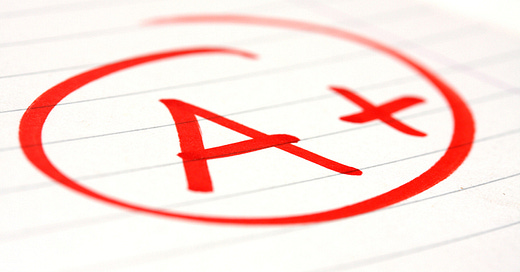Perfectionist Parents - Part 2
Though we may intellectually know that perfection is NOT possible, many of us secretly still believe it is.
Welcome to Raising Good Humans on Bulletin. We are so happy you're joining our judgment-free, science-backed parenting community. Subscribe now to get these articles in your inbox every week, AND consider becoming a premium member for exclusive behind-the-scenes access, LIVE Q&A's, and more original content.
In our last article, we talked about reducing perfectionism in our children. Now, we are expanding our discussion to focus on perfectionist parents.
Research demonstrates that more and more parents expect themselves to be perfect, are overloaded by parenting messages on social media, and believe that their children are a direct reflection of their parenting practices. This is understandable given all of the pressure out there, but it is also unhealthy. Though we may intellectually know that perfection is NOT possible, many of us secretly still believe it is and struggle to find the love, forgiveness and acceptance we need as parents.
Perfectionist parents may seem familiar. For some of us it may feel like looking in the mirror. Making major sacrifices in order to parent; never feeling good or competent enough; fearing doing irreparable harm to their child through ordinary decisions; feeling that they hold the keys to their child’s academic and professional future; and a belief that their attention to parenting guarantees their child’s future wellness. In addition, perfectionist parents criticize themselves frequently, compare themselves and their children to others, accept blame for any of their children’s struggles or failures, second guess their parenting decisions, and frequently disappoint their high expectations.
The phenomenon of perfectionist parenting is not unique to mothers, as surveys reveal that 21st Century dads are also falling victim. Even though dad’s in today’s world spend MUCH more time with their children than their 1960’s counterparts, almost half report not feeling like they do enough. Working mothers are also especially vulnerable, feeling additional guilt around their absence from the home, while exhibiting high competence and skill in the workplace.
How to know if you’re a perfectionist parent? Some common signs include pushing your child to fulfill unrealized dreams of your own, critiquing your child more than you praise them, connecting your self-worth to your child’s achievements, micromanaging your child’s tasks or homework, and inflating the importance of tests, games or competitions.
The impact of all this stress and pressure on our children is predictably negative. Perfectionist parenting can not only harm us, but also undermine our children’s self-esteem, encourage illicit behaviors like lying, eating disorders or substance use, reduce academic performance and undermine the parent-child relationship. So, how to stop your perfectionist parenting? Well, the work starts with YOU.
Have some self-compassion. Honestly assess your strengths and weaknesses as a parent, and offer yourself forgiveness. Create a mantra to tell yourself when you’re down like, “I’m trying my hardest, and whatever happens is OK.”
Remind yourself that if you have been a high achiever in other aspects of your life, it makes sense that you are wired for perfectionism and it is hard to pivot and let go.
Stop comparisons with others. Get off any social media accounts that make you feel judged about your parenting! Avoid any parent related content that adds to your guilt, stress or fear around the job that you are doing, and lean into trusted sources. Have faith that there are many routes to a happy family and that no one answer works for everyone.
Talk about your failures and what you’ve learned from them. Let your children see you make mistakes and then recover. Talk about what you learn from failing and let them see you dust yourself off and try again.
Don’t discount minor mistakes. You may feel comfortable sharing larger failures as teachable moments, but don’t forget to allow space for making small mistakes, too. Every time you make the table setting just so perfect, the message you send is that you expect your children to be just as perfect. Every time you make a mistake in your response to your child, let them know that you noticed, and that it’s not the end of the world. You move on and don’t berate yourself.
Remind yourself that a perfect parent is not a gift for children, it’s a burden. Imagine if the person you looked at as the embodiment of adulthood presented as perfect. How would you accept your imperfect self as you came to realize you could never live up to that standard? As a famous pediatrician Donald Winnicott said, “I would rather be the child of a mother who has all the inner conflicts of the human being than be mothered by someone for whom all is easy and smooth, who knows all the answers, and is a stranger to doubt.”
The best news is, you get an opportunity to make and recover from mistakes each and every day. And, you have no choice but to keep going!
For more tips on helping your children with their perfectionist behavior, read Part 1, here.
Warmly,
Thanks for being a part of Raising Good Humans. We are in this together.





